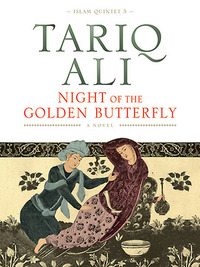Take a photo of a barcode or cover
challenging
dark
reflective
sad
medium-paced
Plot or Character Driven:
Character
Strong character development:
Yes
Loveable characters:
No
Diverse cast of characters:
Yes
Flaws of characters a main focus:
Yes
Dara, a Pakistani expatriate, now an author in the U.S., receives a phone call one night from a very old friend. Though they haven't seen each other in decades, Plato has phoned with a request that Dara write his life story. Contacting mutual friends and acquaintances from their youth inevitably stirs up secrets and various memories of joy, loss, missed opportunities and regret for Dara.
I'm rather crestfallen to have to say that, after the promise of the first few titles in Ali's Islamic Quintet, this book, along with #4, <i>A Sultan in Palermo</i> was a disappointment. (Books #1, <i>Shadows of the Pomegranate Tree</i> and #3, <i>The Stone Woman</i>, are the standouts and very highly recommended by this reader!) I did find it eye-opening to learn more about the time known as The Partition, when in 1947 British India was politically divided into two separate countries, India and Pakistan, which played a small role in the book but was an enormous source of violence and trauma for the region. However, overall, the story was just...dull.
I'm rather crestfallen to have to say that, after the promise of the first few titles in Ali's Islamic Quintet, this book, along with #4, <i>A Sultan in Palermo</i> was a disappointment. (Books #1, <i>Shadows of the Pomegranate Tree</i> and #3, <i>The Stone Woman</i>, are the standouts and very highly recommended by this reader!) I did find it eye-opening to learn more about the time known as The Partition, when in 1947 British India was politically divided into two separate countries, India and Pakistan, which played a small role in the book but was an enormous source of violence and trauma for the region. However, overall, the story was just...dull.
In this fifth and final book of the Islam Quintet series, the characters were somewhat more fleshed out than in the third or fourth. As in each of the previous four novels, the strength and interest lies primarily in the many varied anecdotes, by turns intriguing, horrific, hilarious and poignant. This is where the author’s writing skill shines, although some of the dialogue writing is also engaging. However, the plot - and characters - meander excessively and seemingly pointlessly, trying to cover too much ground and pursue too many narrative threads.
The device of the mysterious final painting, which is unveiled at the very end, is a clever way to bring together all of the characters from their disparate wanderings and draw a kind of closure for the series, since it makes reference to characters from previous books in the series. However, it is a little too much too late and has the feel of deliberate artifice, which obscured what may have been intended as a more subtle farewell to what was in many ways a very provocative and interesting collection of tales.
The device of the mysterious final painting, which is unveiled at the very end, is a clever way to bring together all of the characters from their disparate wanderings and draw a kind of closure for the series, since it makes reference to characters from previous books in the series. However, it is a little too much too late and has the feel of deliberate artifice, which obscured what may have been intended as a more subtle farewell to what was in many ways a very provocative and interesting collection of tales.
